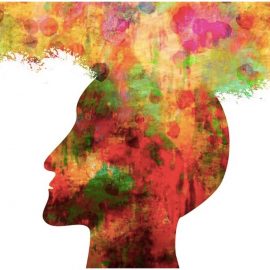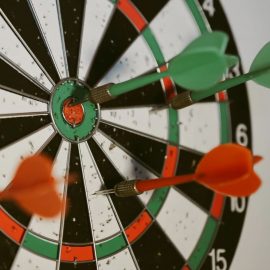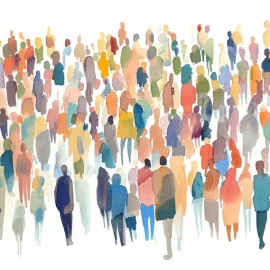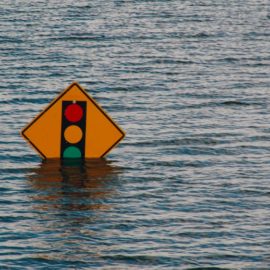
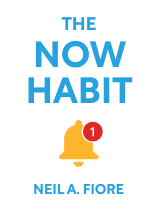
This article is an excerpt from the Shortform book guide to "The Now Habit" by Neil A. Fiore. Shortform has the world's best summaries and analyses of books you should be reading.
Like this article? Sign up for a free trial here.
Does procrastination result from laziness? What is the real reason we tend to procrastinate on important tasks?
Traditionally, we tend to think that procrastination results from laziness. In this view, procrastination in itself is the fundamental problem: It results from a failure of motivation or willpower, and the solution is to try harder and be more disciplined. This is simply not true.
Here’s why procrastination is not laziness, according to Neil Fiore.
Neil Fiore: Why Procrastination Is Not Laziness
In his book The Now Habit, Neil Fiore argues that procrastination is not laziness. He says that we procrastinate because we’re anxious about starting (or finishing) a task. In his view, procrastination is a natural coping mechanism that we adopt in order to deal with the stress we feel about the task.
| Differing Views on Willpower More recent studies support Fiore’s suggestion that willpower isn’t the answer to procrastination. In The Willpower Instinct, Kelly McGonigal argues that willpower is a limited resource and that once you run out of willpower while trying to change a behavior, you’re likely to backslide. She also argues that exercising willpower tires the brain, which leads to impulsive short-term behaviors like procrastination. Conversely, in Indistractible, Nir Eyal argues that thinking of willpower as a depletable resource means that we use it as an excuse to procrastinate. Instead, Eyal recommends treating willpower as an emotion that you can manage in order to get to work even when you don’t feel like it—an approach that, as we’ll see, lines up with many of Fiore’s suggestions. |
Unfortunately, Fiore argues, we’ve been conditioned by parents, teachers, supervisors, and society at large to believe the laziness interpretation—which only makes the problem worse. He says we’re taught that work should be difficult and unpleasant and that playing and relaxing are frivolous wastes of time. As a result, he says, we come to dread work, which makes us want to avoid it—but then we feel guilty whenever we’re not working, and we’re unwilling to schedule deliberate time to play (since that time could be “better” used by doing more work).
These attitudes combine to form a vicious cycle: We feel so much stress and guilt about work that we hide from it by procrastinating, which only adds to the stress and guilt, leading to more avoidance. And because we feel we can’t play (at least, not until our work is done, which it never is), we begin to resent work for keeping us from the things we’d rather be doing.
(Shortform note: This “all work, no play” mentality has only intensified in recent years with hustle culture promoting the virtue of being busy all the time. But not only is play good for your physical and mental health—ironically, it actually boosts productivity. For example, non-work pursuits can build strengths like creativity and communication skills that directly apply to the workplace. Similarly, as Gretchen Rubin argues in The Happiness Project, focusing on play can expand your horizons and make productive tasks more fun. Even doing nothing is sometimes helpful, as studies suggest that daydreaming is good for both your mood and your work.)
Fiore says that the solution is to undo our traditional assumptions about work and play. His idea is that by making time for leisure and relaxation, we lead more balanced and fulfilling lives, and we stop resenting work for taking up all our time. Likewise, instead of assuming that work should be difficult and unpleasant, he recommends finding ways to make it easier so as to lower the pressure we feel around it.
| Procrastination Affects More Than Just “Work” We use the terms “play” and “work” throughout this guide. Fiore uses the word “play” to refer to a variety of activities: fitness and exercise, creative endeavors, hobbies, games, social engagements—anything that you find fun, relaxing, fulfilling, and personally meaningful. Meanwhile, “work” often refers to the tasks and projects that make up the core of your job, but for Fiore, it also refers to any productive (rather than fun or relaxing) tasks and projects you encounter in other parts of your life. This focus on productivity might be misleading. It’s worth keeping in mind that while we traditionally think of procrastination as an obstacle to productivity—by which we generally mean getting a lot of tasks done, getting ahead at work, and so on—procrastination can get in the way of the things we most care about. In The War of Art, Steven Pressfield argues that resistance is the chief enemy of creativity and innovation—and that the top symptom of resistance is procrastination. Similarly, in Start Finishing, Charlie Gilkey identifies a specific form of procrastination he calls “thrashing,” which happens when you spin your wheels thinking about a project without actually moving it forward. Gilkey argues that we only thrash when it comes to projects that are deeply important to us—the professional, creative, or personal endeavors that make a difference in our lives and lead to fulfillment. In short, fixing procrastination isn’t just about checking off more tasks on your to-do list. If there’s anything in your life that you want to work on more than you already do, Fiore’s anti-procrastination ideas might help you do just that. |

———End of Preview———
Like what you just read? Read the rest of the world's best book summary and analysis of Neil A. Fiore's "The Now Habit" at Shortform.
Here's what you'll find in our full The Now Habit summary:
- Why people tend to put off the things that matter the most
- Where procrastination stems from, and why it doesn't mean you're lazy
- How to get more done while still maintaining a balanced life

